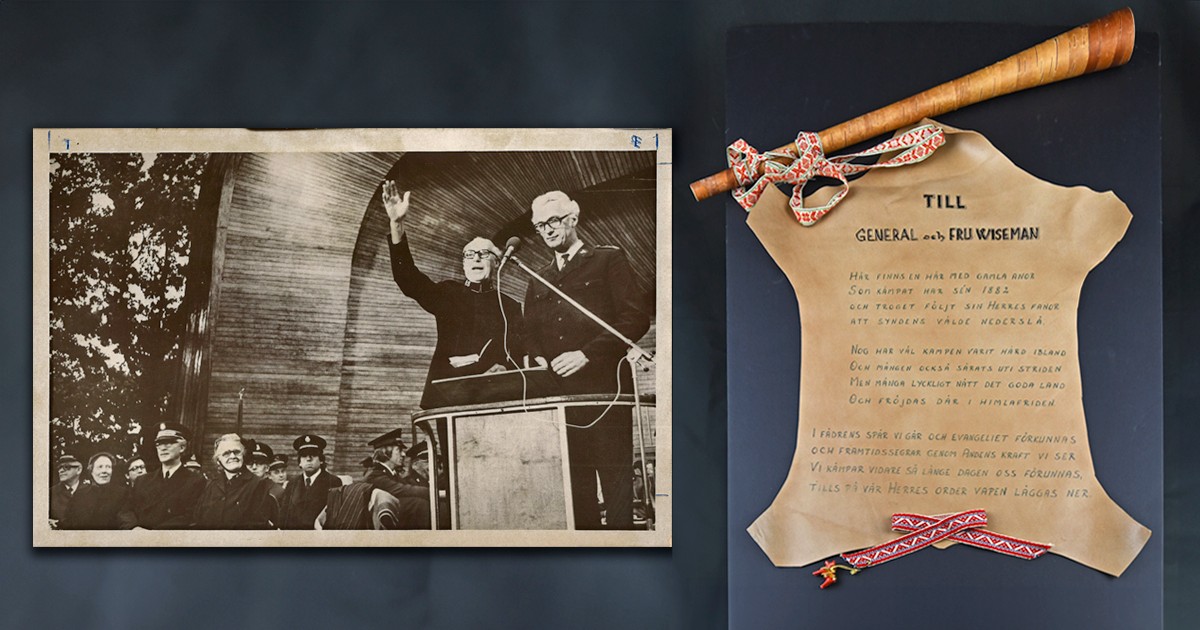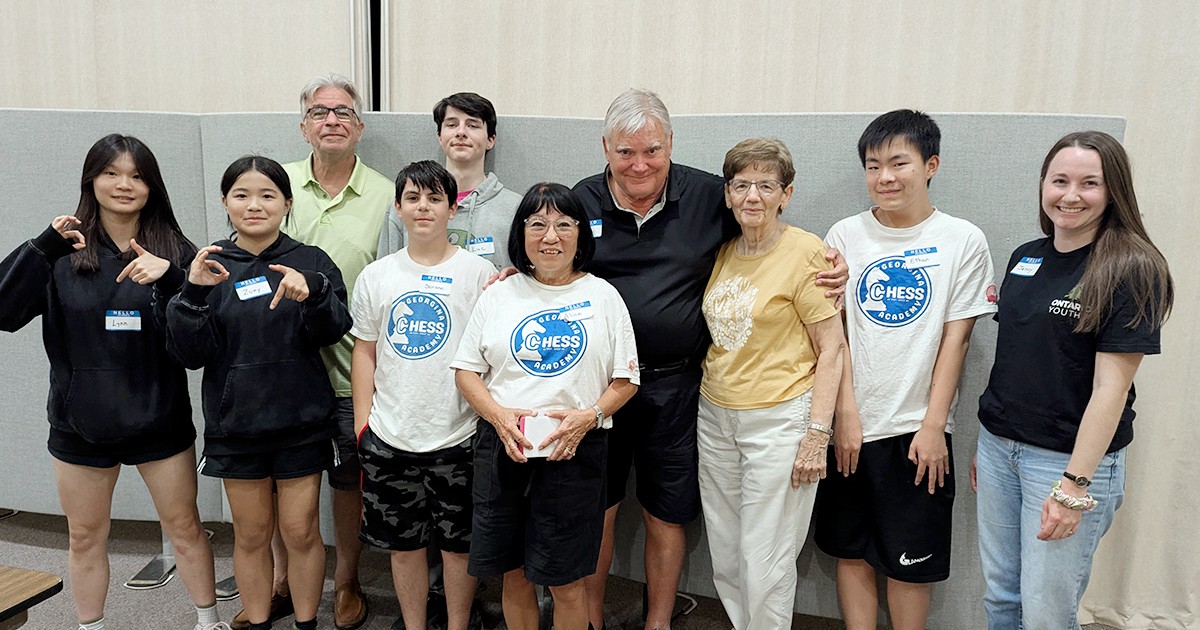"Just look at her, Mom,” my daughter, Erika, said to me. “Sammy is on top of the world.”
Sammy had just finished voting for the first time in her life. It was quite an accomplishment for this 45-year-old. Her tiny figure bounded along, shoulders back, head held higher than usual. Sammy had exercised her constitutional right as a citizen of Canada.
Sammy's Story
Sammy frequented our Hope Café, part of The Salvation Army's Hope Community Church and family services centre in Saint John, N.B. She'd stop in for a coffee and doughnut before going for her daily Methadone dose. Recently, she'd attended a ladies' spa day I hosted. She looked so different when she was done. Her hair—always tightly pulled into a ponytail under a baseball cap—was down that day and styled to perfection. Her makeup was flawless and modest. I remarked how beautiful she was, and this usually stone-faced, somewhat hardened little lady almost cried.
She recounted to me how a few years previously, a “customer” had assaulted her with a brick and left her for dead. Since then, she had undergone several surgeries to reconstruct her face. To have me tell her she was beautiful was cathartic. Normally unemotional, she surprised me by sending a thank-you card a few weeks later.
Validation
As last year's provincial election approached, I was alarmed at the statistics I was reading about the poor voter turnout in our electorate during the previous election. I took the opportunity to address the patrons of our café several times about this, explaining how empowering it was to vote. In the last election, our riding had been won by a mere eight votes; I told them that any one of them could have changed the outcome—if they had voted, too.
On election day, my daughter and I were walking to the returning office when we happened upon Sammy.
“Hi, ladies,” she quipped. “What are you up to?”
We told her we were going to vote. “Why don't you come?” I invited.
Sammy said she didn't know anything about the election but I was able to give her a synopsis of the different party platforms. When I explained to her how her vote held as much weight as mine or the mayor's or even the premier himself, she had an epiphany.
Sammy marched right into that office and announced she wanted to vote. The voting official there was more than accommodating. In a few minutes, she reappeared, looking validated.
Her voice had been heard, her vote had been cast.
Equality for All
Now, as this month's federal election looms, I am making plans to engage even more of our clients in the process by facilitating a mock polling-station session. I see the election as one of many areas of our society where the vulnerable we work with feel incompetent, inadequate and unheard.
As our society becomes more and more technologically savvy, we risk leaving behind a whole section of our population. We need to come alongside these people and assist them in exercising their rights. Anybody who knows their way around a computer or a cellphone can do this. In this world of partiality, privilege and prejudice, the playing field is level in only a few places.
One is at the foot of the cross, where we are all equal before God.
The other is the polling station.
Shelly McCready is the community ministries co-ordinator for The Salvation Army in Saint John, N.B., where she is deeply invested in the lives of the clients who seek services. Shelly advocates in a city with one of the highest rates of poverty in Canada. She is happily married with five children.
Sammy had just finished voting for the first time in her life. It was quite an accomplishment for this 45-year-old. Her tiny figure bounded along, shoulders back, head held higher than usual. Sammy had exercised her constitutional right as a citizen of Canada.
Sammy's Story
Sammy frequented our Hope Café, part of The Salvation Army's Hope Community Church and family services centre in Saint John, N.B. She'd stop in for a coffee and doughnut before going for her daily Methadone dose. Recently, she'd attended a ladies' spa day I hosted. She looked so different when she was done. Her hair—always tightly pulled into a ponytail under a baseball cap—was down that day and styled to perfection. Her makeup was flawless and modest. I remarked how beautiful she was, and this usually stone-faced, somewhat hardened little lady almost cried.
She recounted to me how a few years previously, a “customer” had assaulted her with a brick and left her for dead. Since then, she had undergone several surgeries to reconstruct her face. To have me tell her she was beautiful was cathartic. Normally unemotional, she surprised me by sending a thank-you card a few weeks later.
Validation
As last year's provincial election approached, I was alarmed at the statistics I was reading about the poor voter turnout in our electorate during the previous election. I took the opportunity to address the patrons of our café several times about this, explaining how empowering it was to vote. In the last election, our riding had been won by a mere eight votes; I told them that any one of them could have changed the outcome—if they had voted, too.
On election day, my daughter and I were walking to the returning office when we happened upon Sammy.
“Hi, ladies,” she quipped. “What are you up to?”
We told her we were going to vote. “Why don't you come?” I invited.
Sammy said she didn't know anything about the election but I was able to give her a synopsis of the different party platforms. When I explained to her how her vote held as much weight as mine or the mayor's or even the premier himself, she had an epiphany.
Sammy marched right into that office and announced she wanted to vote. The voting official there was more than accommodating. In a few minutes, she reappeared, looking validated.
Her voice had been heard, her vote had been cast.
Equality for All
Now, as this month's federal election looms, I am making plans to engage even more of our clients in the process by facilitating a mock polling-station session. I see the election as one of many areas of our society where the vulnerable we work with feel incompetent, inadequate and unheard.
As our society becomes more and more technologically savvy, we risk leaving behind a whole section of our population. We need to come alongside these people and assist them in exercising their rights. Anybody who knows their way around a computer or a cellphone can do this. In this world of partiality, privilege and prejudice, the playing field is level in only a few places.
One is at the foot of the cross, where we are all equal before God.
The other is the polling station.
Shelly McCready is the community ministries co-ordinator for The Salvation Army in Saint John, N.B., where she is deeply invested in the lives of the clients who seek services. Shelly advocates in a city with one of the highest rates of poverty in Canada. She is happily married with five children.










Leave a Comment